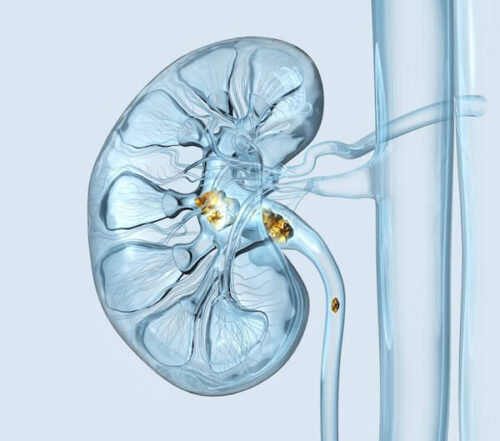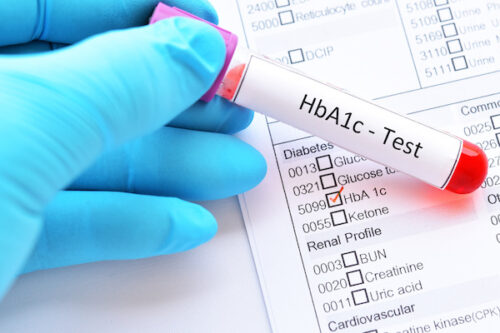Proof that the Atkins Diet Works Like Chemotherapy
Proof that the Atkins Diet Works Like Chemotherapy
(I would like to stop writing about this subject, but the number of people trapped in this deadly dietary foolishness increases by thousands everyday. See below a summary of my articles on Atkins and high protein diets.)
“I have a friend who went on the Atkins Diet – a very high fat, high cholesterol diet – and his cholesterol dropped 50 points. So, this is solid evidence that Dr. McDougall and other medical experts have things all backwards. Obviously this low-carbohydrate diet is a healthy diet.” So, I hear all too often.
My answer: Risk factors, like cholesterol, improve because these dieters eat so much less food – because they are sick from the Atkins diet. A recent study of children proves when dieters are forced to eat enough of all those high-fat, high-protein, low-carbohydrate foods (meat, poultry, fish, eggs, etc.) to fulfill their daily calorie needs, their risk factors for, and their actual risks of, premature death worsens.
Atkins-type Diet Raises Cholesterol and More
The August 20, 2003 issue of the Journal of the American Medical Association published an article “The effect of a high-fat ketogenic diet on plasma levels of lipids, lipoproteins and apolipoproteins in children.” In this 6-month study, 141 children (average age 5.2 years – 70 boys, 71 girls) were placed on an Atkins-type diet for seizure disorders. Researchers found an average increase in total cholesterol of 58 mg/dl, “bad” LDL-cholesterol of 50 mg/dl, triglycerides of 58 mg/dl, and a decrease of “good” HDL-cholesterol of 7 mg/dl. Follow-up of these children at 12 and 24 months showed continued adverse changes in these risk factors for heart disease. All of these deteriorations are serious indicators of poorer health from a high-fat, ketogenic diet.
The most obvious conclusions from the results of this study mean ketogenic diets promote serious artery damage. The earliest signs of artery damage seen in children are fatty streaks and the later lesions seen in adolescents and young adults are fibrous plaques. Cholesterol levels reflect the chance of finding artery disease upon examination of the arteries (for example, by autopsy) or by clinical events later in life, such as heart attacks.
Here is an example of what increases in cholesterol will mean for your future health: Healthy young men age 20 to 25 years with cholesterol levels of more than 210 mg/dl were found to have 5 times the rate of heart disease 30 to 40 years later compared to those who had cholesterol of less than 170 mg/dl. In other words, a difference of 40 mg/dl means 5 times the risk of future heart disease. Now consider that the changes produced by the ketogenic diet in this study of children in 6 months were even worse – 58 mg/dl – an average increase in total cholesterol of 174 mg/dl to 232 mg/dl.
The Reason Atkins Lowers Risk Factors
Almost all of the children showed these adverse changes in blood values indicating they were at higher risks of artery disease in the future. But, followers of the Atkins diet claim the opposite – so why the drastic difference? The difference between the children treated for seizure control and people on the Atkins diet is the amount of food consumed. The authors of this study know this difference and state, “the ketogenic diet was designed to have sufficient calories to promote healthy growth and development. Measurement of lipids and lipoprotein in healthy adults receiving a ketogenic diet has usually been obtained while patients are actively losing weight.”
Unless force-fed like the children, loss of appetite caused by a ketogenic diet causes a person to eat less food – which means eating fewer calories, and less cholesterol, fat, sugar, refined and processed foods, animal protein, and salt. As a direct result of less food, signs of improved health seem to appear because risk factors, like serum cholesterol, triglycerides, uric acid, glucose, and blood pressure, may decrease – and the patient is declared healthier. Not necessarily so. Similar benefits, for similar reasons, are seen when patients are placed on cancer chemotherapy – and doctors don’t brag about these results.
I hope you can understand how eating smaller amounts of unhealthy foods (red meat, fried chicken, pork rinds, and fried cheese) will lower risk factors, yet cannot possibly transform these same foods into cures for heart disease.
 So when your friends boast about their results with the Atkins diet, assure them that those results are not real indicators of better health and will be temporary at best – because no one can stay that sick for very long. Even the founder, Dr. Robert Atkins, could not follow his own diet – look at his pictures before he had his massive cardiac arrest and almost died in April of 2002 – my guess is he was at least 60 pounds overweight with jowls hanging to his chest. Comfort your misguided friends by telling them that when they’re ready you will teach them a diet that will reverse much (but not all) of the damage they have done to themselves with the Atkins diet.
So when your friends boast about their results with the Atkins diet, assure them that those results are not real indicators of better health and will be temporary at best – because no one can stay that sick for very long. Even the founder, Dr. Robert Atkins, could not follow his own diet – look at his pictures before he had his massive cardiac arrest and almost died in April of 2002 – my guess is he was at least 60 pounds overweight with jowls hanging to his chest. Comfort your misguided friends by telling them that when they’re ready you will teach them a diet that will reverse much (but not all) of the damage they have done to themselves with the Atkins diet.
* Ketogenic refers to the creation of a state of ketosis. Ketosis is a natural condition the body resorts to under harsh circumstances, such as illness or starvation. When people are ill they need to be recuperating, not gathering and preparing foods. Loss of appetite facilitates recovery. A kindness of Nature for starving people is to quiet the pain of hunger. After 3 days with no food the body enters a state of ketosis and the pain of dying is relieved.
** The Seizure Treatment
Almost 80 years ago doctors began using a diet sufficiently restricted in carbohydrate to cause the body to change its metabolism to burn fat, and produce a byproduct – ketones – for seizure control. This diet works as well as, or better than, medications, yet the mechanism which decreases seizures remains unknown. The greater the level of ketosis, the better the seizure control. The anti-seizure benefits may last long after the diet is discontinued. To be effective, the fat content of the child’s diet must be about 90% of the calories – carbohydrates are restricted to less than 10g/day – similar to the Atkins diet.
However, the major difference between the two ketogenic diets (Atkins for weight loss vs. the one for seizure control) is the goal for the intake of calories. The diet for the children is calorie sufficient so that they will grow. It is often a chore for parents to get their children to eat enough of these fatty foods to meet calorie needs. This is reflected in the fact that 15% (25 of the 165) eligible subjects quit the diet because it was “too restrictive.”
Short-term complications of this seizure-control diet included hypoglycemia, vomiting, diarrhea, dehydration, and refusal to eat. Long-term complications included irritability, lethargy, kidney stones, acidosis, hyperuricemia (uric acid), hypocalcemia (low calcium), decreased amino acids, decreased growth, and elevated cholesterol. Most patients stop the ketogenic diet after 2 years – hopefully, temporary use in childhood will not result in a long-term increased risk of heart disease, cancer, osteoporosis, and kidney damage.
References:
1) Kwiterovich PO. Effect of a high-fat ketogenic diet on plasma levels of lipids, lipoproteins, and apolipoproteins in children. JAMA. 2003 Aug 20;290(7):912-20.
2) Klag MJ, Ford DE, Mead LA, et al. Serum cholesterol in young men and subsequent cardiovascular disease. N Engl J Med. 1993;328:313-318.
3) Subramaniam S. Studies on the changes in plasma lipids and lipoproteins in CMF treated breast cancer patients. Biochem Int. 1991 Aug;24(6):1015-24.
Summary of McDougall Articles on High Protein Diets:
Home Page (www.drmcdougall.com)
The Great Debate – High vs. Low Protein Diets (Mostly about the Zone)
High Protein Diets (Mostly about Atkins)
Newsletters:
February 2002
The Heart Association Condemns High-Protein Diets
June 2002
Atkins’ Diet and His Cardiac Arrest
November 2002
Atkins Diet Is As Good as Chemotherapy for Weight Loss
January 2003
The Right Diet Will Save Your Bones
March 2003
Restrict Protein – Save Your Kidneys
May 2003
Understanding the New Atkins Research
August 2003
Suck Carrots, High Protein Diet Advocates
September 2003
Proof Atkins Works Like Chemotherapy
Recommended Articles

The Truth About Oxalates & Kidney Stones

How to Cook Beans






